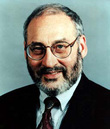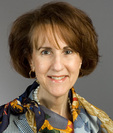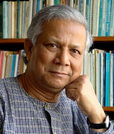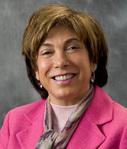Last Update
Finance & Economy - Top Rated Keynote Speakers

Speakers Ranked combs the web and uses statistical algorithms to rate the best, most positively discussed keynote speakers in a broad list of categories, rendering an algebraic score for each.
Speakers Ranked is not a speakers bureau. We do not accept payment for placement or receive commissions of any kind. If you like this free service, please donate via PayPal!
Speakers Ranked is not a speakers bureau. We do not accept payment for placement or receive commissions of any kind. If you like this free service, please donate via PayPal!
Suze Orman

Current Rank: 1
Statistical Rank: 9462
Direct Contact: suzeorman.com
The personal finance contributor on CNBC, Suze hosts her own national CNBC-TV show, which airs on Saturdays nights. It is one of the network's highest-rated program for the weekend. She is the author of five consecutive New York Times bestsellers,
Suze is currently the monthly contributing financial editor to O: The Oprah Magazine in both the United States and South Africa as well as the financial contributor to O at Home. Suze is also the featured writer on Yahoo Personal Finance in her extremely popular bi- weekly Money Matters series. Previously, Suze was the contributing financial editor to Self magazine and was the editor in chief of a Conde Nast specialty magazine, Currency, which had a record–breaking, single publication run of 9.3 million copies. For the past six years, Suze has been regularly featured in Costco Magazine dispensing advice to those looking for guidance when it comes to their hard-earned dollars.
Suze has written, co-produced, and hosted five PBS specials based on her books. Her most recent The Money Book for the Young Fabulous & Broke premiered nationwide in March 2005 and was recently nominated for two EMMY awards. Suze is the most successful single fund raiser in the history of PBS and earned an EMMY award in 2004 for her performance in the PBS special The Laws of Money the Lessons of Life.
Statistical Rank: 9462
Direct Contact: suzeorman.com
The personal finance contributor on CNBC, Suze hosts her own national CNBC-TV show, which airs on Saturdays nights. It is one of the network's highest-rated program for the weekend. She is the author of five consecutive New York Times bestsellers,
Suze is currently the monthly contributing financial editor to O: The Oprah Magazine in both the United States and South Africa as well as the financial contributor to O at Home. Suze is also the featured writer on Yahoo Personal Finance in her extremely popular bi- weekly Money Matters series. Previously, Suze was the contributing financial editor to Self magazine and was the editor in chief of a Conde Nast specialty magazine, Currency, which had a record–breaking, single publication run of 9.3 million copies. For the past six years, Suze has been regularly featured in Costco Magazine dispensing advice to those looking for guidance when it comes to their hard-earned dollars.
Suze has written, co-produced, and hosted five PBS specials based on her books. Her most recent The Money Book for the Young Fabulous & Broke premiered nationwide in March 2005 and was recently nominated for two EMMY awards. Suze is the most successful single fund raiser in the history of PBS and earned an EMMY award in 2004 for her performance in the PBS special The Laws of Money the Lessons of Life.
Joseph Stiglitz

Current Rank: 2
Statistical Rank: 9217
Direct Contact: www2.gsb.columbia.edu/faculty/jstiglitz/
Joseph Stiglitz was awarded the Nobel Prize in Economics in October 2001 by the Royal Swedish Academy of Sciences. Stiglitz, former chief economist at the World Bank, has appointments at Columbia’s School of International and Public Affairs (SIPA), the Economics Department of the Graduate School of Arts and Sciences and the Graduate School of Business.
Officially named the Bank of Sweden Prize in Economic Sciences, Stiglitz won the award with George Akerlof of the University of California, Berkeley and A. Michael Spence of Stanford University. The Academy selected the trio for “their analyses of markets with asymmetric information.”
Internationally recognized as one of the leading economists of his generation, Stiglitz helped create a new branch of economics - “The Economics of Information” - which has been applied throughout the field. As a member of the advisory team to the United States Government, he has played a large role in advising administrations on policy matters including the Telecommunications Act of ‘96, Healthcare Reform, Welfare Reform and the economic implications of National Security Measures.
His career began at Yale, where he became a tenured professor at the age of 27. Stiglitz has also been a faculty member at Princeton, Oxford and Stanford universities. Stiglitz has become influential in the making an evaluation of economic policy in the last decade. He served on President Clinton’s Council of Economic Advisers - first as a member and later as chairman with
cabinet rank. He was later named chief economist of the World Bank. Since January 2000, Stiglitz has been a visiting professor at Columbia’s Graduate School of Business and Department of Economics in the Graduate School of Arts and Sciences.
Statistical Rank: 9217
Direct Contact: www2.gsb.columbia.edu/faculty/jstiglitz/
Joseph Stiglitz was awarded the Nobel Prize in Economics in October 2001 by the Royal Swedish Academy of Sciences. Stiglitz, former chief economist at the World Bank, has appointments at Columbia’s School of International and Public Affairs (SIPA), the Economics Department of the Graduate School of Arts and Sciences and the Graduate School of Business.
Officially named the Bank of Sweden Prize in Economic Sciences, Stiglitz won the award with George Akerlof of the University of California, Berkeley and A. Michael Spence of Stanford University. The Academy selected the trio for “their analyses of markets with asymmetric information.”
Internationally recognized as one of the leading economists of his generation, Stiglitz helped create a new branch of economics - “The Economics of Information” - which has been applied throughout the field. As a member of the advisory team to the United States Government, he has played a large role in advising administrations on policy matters including the Telecommunications Act of ‘96, Healthcare Reform, Welfare Reform and the economic implications of National Security Measures.
His career began at Yale, where he became a tenured professor at the age of 27. Stiglitz has also been a faculty member at Princeton, Oxford and Stanford universities. Stiglitz has become influential in the making an evaluation of economic policy in the last decade. He served on President Clinton’s Council of Economic Advisers - first as a member and later as chairman with
cabinet rank. He was later named chief economist of the World Bank. Since January 2000, Stiglitz has been a visiting professor at Columbia’s Graduate School of Business and Department of Economics in the Graduate School of Arts and Sciences.
Charlene Barshefsky

Current Rank: 3
Statistical Rank: 9031
Direct Contact: wilmerhale.com/charlene_barshefsky/
Ambassador Charlene Barshefsky, Senior International Partner at WilmerHale in Washington, DC, advises multinational corporations on their market access, investment and acquisition strategies across the globe. She has long been renowned in the US and around the world for her negotiating, policy and legal skills in transactions with governments, state-owned enterprises and private parties.
She joined WilmerHale after serving as the United States Trade Representative from 1997 to 2001 and acting and deputy USTR from 1993 to 1996. As the USTR and a member of the President’s Cabinet, she was responsible for the formulation of US trade policy and the negotiation of hundreds of complex trade and investment agreements that significantly opened markets, removed regulatory barriers, and cemented protections for US investment from Europe to Asia, Africa to Latin America, and the Middle East. She also led the negotiation of global agreements to open the financial services and telecommunications sectors, remove global tariffs on information technology products, and protect intellectual property rights.
Ambassador Barshefsky is best known globally as the architect and negotiator of China’s WTO agreement, which opened China’s economy as a worldwide market. This agreement, of undisputed historical importance, has helped to reshape the global economic landscape. Her agreement to open the Vietnamese market was the cornerstone of the normalization of relations between the US and Vietnam; and her pursuit of pro-growth trade policies in the Middle East -through the initial creation of special economic zones to integrate Israel with her neighbors, and a Free Trade Agreement with Jordan - has been recognized as a foundation element for subsequent free trade initiatives with the Muslim Middle East.
A renowned figure among governments and policymakers around the world and in the legal profession, and long at center stage in the development of international trade policy, Ambassador Barshefsky has been honored by both Harvard and Yale law schools. Her negotiations are the subject of several Harvard Business School case studies; and her negotiating skills and legal talent have been heavily profiled in a large number of books, magazines and newspapers. She is a frequent lecturer and op-ed contributor in the US and abroad on trade and economic issues of importance, and is the recipient of a number of honorary degrees and numerous other accolades for lifetime achievement. She is recognized as one of the most influential lawyers in the United States, and is a member of a broad range of foreign policy-oriented and economic institutions devoted to public policy and international relations.
Ambassador Barshefsky serves on the Boards of Directors of the American Express Company, the Estee Lauder Companies, Intel Corporation, and Starwood Hotels and Resorts Worldwide. She is a Trustee of the Howard Hughes Medical Institute and serves on the Board of Directors of the Council on Foreign Relations.
Statistical Rank: 9031
Direct Contact: wilmerhale.com/charlene_barshefsky/
Ambassador Charlene Barshefsky, Senior International Partner at WilmerHale in Washington, DC, advises multinational corporations on their market access, investment and acquisition strategies across the globe. She has long been renowned in the US and around the world for her negotiating, policy and legal skills in transactions with governments, state-owned enterprises and private parties.
She joined WilmerHale after serving as the United States Trade Representative from 1997 to 2001 and acting and deputy USTR from 1993 to 1996. As the USTR and a member of the President’s Cabinet, she was responsible for the formulation of US trade policy and the negotiation of hundreds of complex trade and investment agreements that significantly opened markets, removed regulatory barriers, and cemented protections for US investment from Europe to Asia, Africa to Latin America, and the Middle East. She also led the negotiation of global agreements to open the financial services and telecommunications sectors, remove global tariffs on information technology products, and protect intellectual property rights.
Ambassador Barshefsky is best known globally as the architect and negotiator of China’s WTO agreement, which opened China’s economy as a worldwide market. This agreement, of undisputed historical importance, has helped to reshape the global economic landscape. Her agreement to open the Vietnamese market was the cornerstone of the normalization of relations between the US and Vietnam; and her pursuit of pro-growth trade policies in the Middle East -through the initial creation of special economic zones to integrate Israel with her neighbors, and a Free Trade Agreement with Jordan - has been recognized as a foundation element for subsequent free trade initiatives with the Muslim Middle East.
A renowned figure among governments and policymakers around the world and in the legal profession, and long at center stage in the development of international trade policy, Ambassador Barshefsky has been honored by both Harvard and Yale law schools. Her negotiations are the subject of several Harvard Business School case studies; and her negotiating skills and legal talent have been heavily profiled in a large number of books, magazines and newspapers. She is a frequent lecturer and op-ed contributor in the US and abroad on trade and economic issues of importance, and is the recipient of a number of honorary degrees and numerous other accolades for lifetime achievement. She is recognized as one of the most influential lawyers in the United States, and is a member of a broad range of foreign policy-oriented and economic institutions devoted to public policy and international relations.
Ambassador Barshefsky serves on the Boards of Directors of the American Express Company, the Estee Lauder Companies, Intel Corporation, and Starwood Hotels and Resorts Worldwide. She is a Trustee of the Howard Hughes Medical Institute and serves on the Board of Directors of the Council on Foreign Relations.
Muhammad Yunus

Current Rank: 4
Statistical Rank: 8875
Direct Contact: muhammadyunus.org/
2006 Nobel Prize Winner
Founder, Grameen Bank
Member of Board of Directors of UN Foundation
As founder of the Grameen Movement, Professor Muhammad Yunus is a revolutionary. His ideas couple capitalism with social responsibility and have changed the face of rural economic and social development forever.
Professor Yunus is responsible for many innovative programs benefiting the rural poor. In 1974, he pioneered the idea of Gram Sarker (village government) as a form of local government based on the participation of rural people. This concept proved successful and was adopted by the Bangladeshi government in 1980. In 1978, he received the President's award for Tebhaga Khamar (a system of cooperative three-share farming, which the Bangladeshi government adopted as the Packaged Input Program in 1977).
A Fulbright Scholar at Vanderbilt University, Professor Yunus received his Ph.D. in Economics in 1969. Later that year, he became an assistant professor of Economics at Middle Tennessee State University, before returning to Bangladesh where he joined the Economics Department at Chittagong University.
The UN secretary general appointed Professor Yunus to the International Advisory Group for the Fourth World Conference on Women in Beijing from 1993 to 1995. Professor Yunus has also served on the Global Commission of Women's Health (1993-1995), the Advisory Council for Sustainable Economic Development (1993-present), and the UN Expert Group on Women and Finance. He also serves as the chair of the Policy Advisory Group (PAG) of Consultative Group to Assist the Poorest (CGAP). Yunus has also served on many committees and commissions dealing with education, population, health, disaster prevention, banking, and development programs. He is currently on the boards of many international organizations including Amanah Ikhtiar Malaysia (a Grameen replication project), the International Rice Research Institute in the Philippines, and Credit and Savings for the Poor in Malayasia. Professor Yunus also sits on the board of the Calvert World Values Fund, the Foundation for International Community Assistance, the National Council for Freedom From Hunger, RESULTS and the International Council of Ashoka Foundation, all of which are located in the US.
Professor Yunus has received the following International awards: the Ramon Magsaysay Award (1984) from Manila; the Aga Khan Award for Architecture (1989) from Geneva; the Mohamed Shabdeen Award for Science (1993) from Sri Lanka; and the World Food Prize by World Food Prize Foundation (1994) from the US. Within Bangladesh, he has received the President's Award (1978), Central Bank Award (1985), and the Independence Day Award (1987), the nation's highest award.
Statistical Rank: 8875
Direct Contact: muhammadyunus.org/
2006 Nobel Prize Winner
Founder, Grameen Bank
Member of Board of Directors of UN Foundation
As founder of the Grameen Movement, Professor Muhammad Yunus is a revolutionary. His ideas couple capitalism with social responsibility and have changed the face of rural economic and social development forever.
Professor Yunus is responsible for many innovative programs benefiting the rural poor. In 1974, he pioneered the idea of Gram Sarker (village government) as a form of local government based on the participation of rural people. This concept proved successful and was adopted by the Bangladeshi government in 1980. In 1978, he received the President's award for Tebhaga Khamar (a system of cooperative three-share farming, which the Bangladeshi government adopted as the Packaged Input Program in 1977).
A Fulbright Scholar at Vanderbilt University, Professor Yunus received his Ph.D. in Economics in 1969. Later that year, he became an assistant professor of Economics at Middle Tennessee State University, before returning to Bangladesh where he joined the Economics Department at Chittagong University.
The UN secretary general appointed Professor Yunus to the International Advisory Group for the Fourth World Conference on Women in Beijing from 1993 to 1995. Professor Yunus has also served on the Global Commission of Women's Health (1993-1995), the Advisory Council for Sustainable Economic Development (1993-present), and the UN Expert Group on Women and Finance. He also serves as the chair of the Policy Advisory Group (PAG) of Consultative Group to Assist the Poorest (CGAP). Yunus has also served on many committees and commissions dealing with education, population, health, disaster prevention, banking, and development programs. He is currently on the boards of many international organizations including Amanah Ikhtiar Malaysia (a Grameen replication project), the International Rice Research Institute in the Philippines, and Credit and Savings for the Poor in Malayasia. Professor Yunus also sits on the board of the Calvert World Values Fund, the Foundation for International Community Assistance, the National Council for Freedom From Hunger, RESULTS and the International Council of Ashoka Foundation, all of which are located in the US.
Professor Yunus has received the following International awards: the Ramon Magsaysay Award (1984) from Manila; the Aga Khan Award for Architecture (1989) from Geneva; the Mohamed Shabdeen Award for Science (1993) from Sri Lanka; and the World Food Prize by World Food Prize Foundation (1994) from the US. Within Bangladesh, he has received the President's Award (1978), Central Bank Award (1985), and the Independence Day Award (1987), the nation's highest award.
Dr. Laura D'Andrea Tyson

Current Rank: 5
Statistical Rank: 8783
Direct Contact: www2.haas.berkeley.edu/Faculty/tyson_laura.aspx
Member of President Obama's Economic Advisory Panel
National Economic Advisor to President Clinton, 1995-1996
First Female Chairman of the White House Council of Economic Advisors, 1993-1995
First Female Dean, London Business School, 2002 - 2006
Laura D’Andrea Tyson is the S.K. and Angela Chan Professor of Global Management at the Haas School of Business, at the University of California Berkeley. She served as Dean of London Business School from 2002-2006, and as Dean of the Haas School of Business, University of California at Berkeley from 1998-2001.
Dr. Tyson is a member of the President Barack Obama’s Economic Recovery Advisory Board (PERAB). She served in the Clinton Administration and was the Chair of The Council of Economic Advisers between 1993 and 1995, and the President’s National Economic Adviser between 1995 and 1996.
Dr. Tyson is a Senior Advisor to the McKinsey Global Institute and the Center for American Progress. She is also a member of the Brookings Institution Hamilton Project Advisory Council and a member of Newman’s Own Advisory Board. She is a Director of LECG (Law and Economics Consulting Group) and is a member of the Boards of Directors of Eastman Kodak Company; Morgan Stanley; AT&T, Inc.; the Peter G. Peterson Institute of International Economics; and the New America Foundation.
Dr. Tyson has written for many publications including the New York Times, the Financial Times and the Washington Post and has made numerous television appearances on economic issues. She was a monthly columnist for Business Week between 1998 and 2005. She is the author of numerous reports, academic papers and books on competitiveness, industrial policy and international trade, including the influential book Who’s Bashing Whom? Trade Conflict in High Technology Industries.
Dr. Tyson has a summa cum laude undergraduate degree from Smith College and a PhD in economics from the Massachusetts Institute of Technology.
Statistical Rank: 8783
Direct Contact: www2.haas.berkeley.edu/Faculty/tyson_laura.aspx
Member of President Obama's Economic Advisory Panel
National Economic Advisor to President Clinton, 1995-1996
First Female Chairman of the White House Council of Economic Advisors, 1993-1995
First Female Dean, London Business School, 2002 - 2006
Laura D’Andrea Tyson is the S.K. and Angela Chan Professor of Global Management at the Haas School of Business, at the University of California Berkeley. She served as Dean of London Business School from 2002-2006, and as Dean of the Haas School of Business, University of California at Berkeley from 1998-2001.
Dr. Tyson is a member of the President Barack Obama’s Economic Recovery Advisory Board (PERAB). She served in the Clinton Administration and was the Chair of The Council of Economic Advisers between 1993 and 1995, and the President’s National Economic Adviser between 1995 and 1996.
Dr. Tyson is a Senior Advisor to the McKinsey Global Institute and the Center for American Progress. She is also a member of the Brookings Institution Hamilton Project Advisory Council and a member of Newman’s Own Advisory Board. She is a Director of LECG (Law and Economics Consulting Group) and is a member of the Boards of Directors of Eastman Kodak Company; Morgan Stanley; AT&T, Inc.; the Peter G. Peterson Institute of International Economics; and the New America Foundation.
Dr. Tyson has written for many publications including the New York Times, the Financial Times and the Washington Post and has made numerous television appearances on economic issues. She was a monthly columnist for Business Week between 1998 and 2005. She is the author of numerous reports, academic papers and books on competitiveness, industrial policy and international trade, including the influential book Who’s Bashing Whom? Trade Conflict in High Technology Industries.
Dr. Tyson has a summa cum laude undergraduate degree from Smith College and a PhD in economics from the Massachusetts Institute of Technology.

